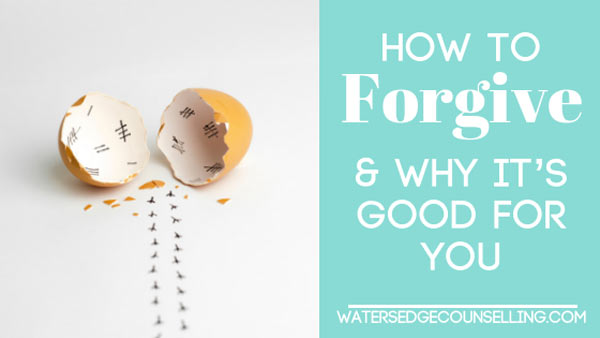
Most of us learn about forgiveness in the context of our family and/or religion. And around Easter, we find that it comes up more often. So what is forgiveness, and why is it actually good for us?
As a child you learn that if you hurt your sibling, you will be told to show remorse and ‘say sorry’. If you did this, you understood that to mean that you were forgiven by your sibling, and life could go on. If, on the other hand, you were the offended one, you learnt that when offered an apology, you were expected to forgive the offender. What was that like for you I wonder?
Are you a forgiving person?
Have there been times when you have struggled to forgive? As much as I would like to think that I am a forgiving person, consistently living according to this value, I am also aware that there are times in my life experience that I have struggled to let go of my personal pain and forgive the other. If you identify with my experience, I wonder why you struggle to ‘let go’ of your pain and forgive the other? Is it your pride, the degree of pain you feel, the hatred you harbor, the fear of being hurt again? What do you stand to gain by letting go of your pain and forgiving the other?
Forgiveness is better for:
Your physical health – Forgiveness has the affect of lowering your blood pressure, adding to the longevity of your life.
Your mental health – When you forgive another you will feel less stressed and anxious, allowing you to sleep better.
Your relational health – You remain connected and engaged with others.
Unforgiveness, on the other hand, breeds resentment, bitterness and depression, isolates us from other people and has an ageing affect.
Forgiveness is undoubtedly a healthier choice, physically, mentally and socially. However, I can still struggle to let go of my hurt and act in forgiveness. I have come to the conclusion that forgiveness is a bit like building a long bridge over a deep chasm. It is a process that involves personal risk and much courage.
When I forgive someone whose action has had a negative impact on myself, my intent is to ‘let go’ of my resentment and hurt and wish the other only good. Feelings however, do not change immediately, and require time and a different perspective. That is the bridge-building process that I refer to.
Forgiveness does not mean that you can forget the injury or pretend it never happened. Nor does it mean that you can be close friends. Trust and respect are often destroyed, and only time and healing can rebuild these. When you desire to act with forgiveness, in affect your attitude is saying, “I will start rebuilding a bridge towards you.” The bridge is made from the choices you make on a daily basis to act with kindness, openness and humility rather than resentment, hostility and bitterness.
In that process, the person who stands to change the most is you. One of the reasons we struggle to forgive others is because we have not forgiven ourselves our personal failures and shortcomings. It causes less discomfit to judge someone else for their wrongdoing than it is to tolerate your own self-hatred. When you deliberately act with kindness and care towards others, you learn to be kinder and more forgiving towards yourself.
I invite you to try this approach, to loosen you hold on resentment and hostility and determine today to start building your own bridges towards the people who have wronged you. Notice the impact this has on your physical, mental and social wellbeing and how it changes you as a person.
Have you been hurt or betrayed? Are feelings of unforgivness and pain destroying you or a relationship? Here’s what you need to do: Contact Colleen on 0434 337 245 or Duncan on 0434 331 243 for a FREE 10 minute consultation on how we can best help you or book online.
Leave a Reply